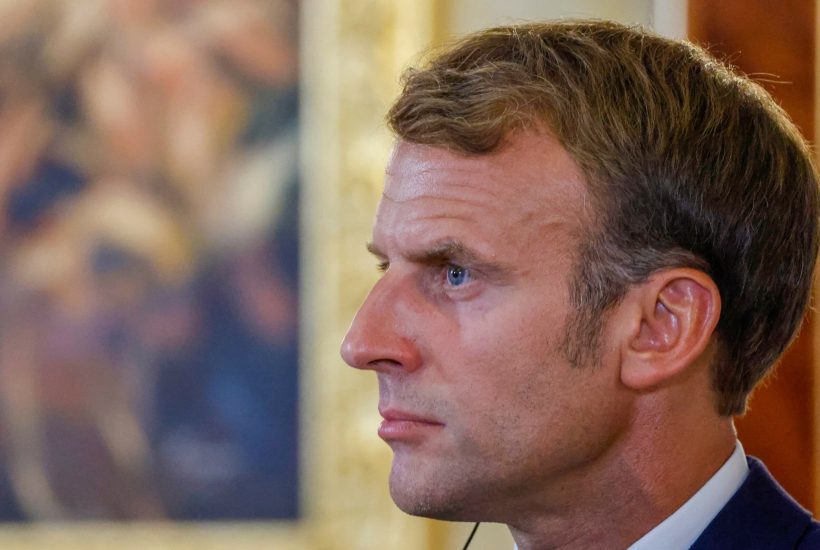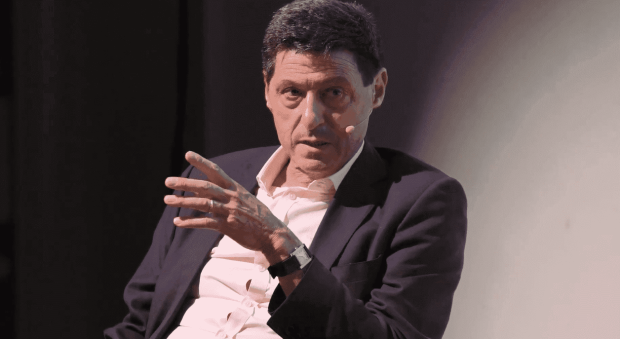It is four days since the US, UK and Australia announced their historic security pact in the Asia-Pacific but there are few signs of anger abating from the usual suspects.
The deal will let Australia build nuclear-powered submarines for the first time, using technology provided by America. Cyber ability and undersea technologies will also be shared in the pact, which focuses on military capability, separating it from the Five Eyes intelligence-sharing alliance which also includes New Zealand and Canada.
But while the move has delighted Anglophiles overseas and supporters of CANZUK here in Britain, not all are so happy with news of the historic defence pact. France has grabbed most of the headlines for its somewhat petulant response to losing a deal with Australia to build 12 submarines, but others have not covered themselves in glory either.
Below is Steerpike’s guide to four of the worst responses to the Aukus deal…
France
We start with the obvious one. The French response to being cut out of the security pact was to recall its ambassadors from the US and Australia – but not the UK. For some, this was proof of the close ties between London and Paris; for others it was simply an even more magisterial French rebuke to British pretensions.
One source close to the Elysee claimed that Macon did not recall his man in London ‘for the same reason that when the cooking in a restaurant is not first class, you sack the chef, not the guy who washes the dishes.’ The French foreign minister Jean-Yves Le Drian even told one network that there was ‘no need to call back our ambassador’ because ‘we are familiar with Britain’s permanent opportunism – and in this case they’re the “fifth wheel on the carriage.”‘ Ooh la la.
“No need to call back our ambassador in the UK. We are familiar with Britain’s permanent opportunism – and in this case they’re the “spare wheel on the carriage”
French Foreign Minister @JY_LeDrian just now on main French news pic.twitter.com/9HvItYtawN
— Alex Taylor (@AlexTaylorNews) September 18, 2021
His colleague, Europe minister Clement Beaune, went even further, claiming that: ‘our British friends explained to us they were leaving the EU to create Global Britain. We can see that this is a return into the American lap and a form of accepted vassalisation’ and adding in a separate attack: ‘Global Britain seems to be more about a US junior partner than working with different allies.’
The French embassy in Washington has now even gone so far as to cancel the gala to celebrate Franco-American friendship. The festivities were to mark the 240th anniversary of the Battle of the Capes when the French navy defended America’s independence by, er, defeating its British counterpart. Work that one out if you can.
As a number of military commentators have since noted, it should not come as a complete surprise to Élysée policy makers that Australia reneged on its original diesel submarine deal. French capability was poor, behind schedule and risked being obsolete within the next decade – hardly surprising then that the Aussies wanted nuclear submarines instead, which France would not give them.
Steerpike would gently suggest to the pocket De Gaulles that their intemperate response might well just vindicate those in Canberra, London and Washington who sought to keep Paris in the dark. Notably, there has been little sign that the anger of the Élysée is shared elsewhere in Europe…
China
While French anger over Aukus is unfortunate, Beijing’s wrath is somewhat more enjoyable. Mr S has greatly enjoyed the belligerent expostulations of various po-faced apparatchiks about a ‘new Cold War’ and ‘threats to peace.’
China’s embassy in Washington has accused the countries involved of a ‘Cold War mentality and ideological prejudice’ while Foreign ministry spokesman Zhao Lijian said it ‘seriously undermines regional peace and stability and intensifies the arms race.’ The state-run tabloid Global Times shrilled that ‘history will surely nail the incumbent US government’s ugly move on the pillar of shame.’
The nuclear submarine cooperation among the US, the UK&Australia severely undermines regional peace&stability, intensifies arms race and undercuts intl non-proliferation efforts. It’s highly irresponsible and shows double standards on using nuclear export for geopolitical games. pic.twitter.com/3J3gZWlhLg
— Lijian Zhao 赵立坚 (@zlj517) September 16, 2021
This of course is from a regime which spent $252 billion on defence last year – an increase of 76 per cent over the decade from 2011 to 2020. Its navy now has more ships than America’s; the country has continued to pressure Taiwan and made a veritable smorgasbord of territorial demands directed against Vietnam, Japan and India.
If there is to be a Cold War, Steerpike doubts it will be Aukus that made it happen.
Jeremy Corbyn
Where the cranks go, Jezza follows. In a script that could have come straight from the lips of a CCP spokesman, the former leader of the Labour party took to Twitter to claim the defence pact was an effort to ‘start a new Cold War.’ He subsequently bleated that ‘international opposition’ to the agreement ‘reflects a growing understanding that real security won’t come from starting a new nuclear weapons race.’ With MPs like these, who needs enemies?
Starting a new cold war will not bring peace, justice and human rights to the world. #AUKUS
— Jeremy Corbyn (@jeremycorbyn) September 16, 2021
The BBC
A state-run outlet depicting the defence pact as universally unpopular might make sense in Beijing. But Steerpike was baffled to see how the BBC in London sought to frame news of Aukus, with a headline that claimed there was a ‘global backlash’ to the deal.
The BBC thinks the angle on the AUKUS story is that the US and UK are isolated!!
Wonder what the spin would have been had the deal involved US, Australia and France, but left out UK? https://t.co/24cHLw8hM9— Patrick O’Flynn (@oflynnsocial) September 18, 2021
As Shashank Joshi, the defence editor of the Economist, pointed out, India, Japan, Taiwan have all responded positively to the announcement while China (which objects to everything), France (for obvious reasons) and Indonesia appear to be the only three main objectors to the deal. Does three countries really constitute a ‘backlash’?
Steerpike wonders if the best possible endorsement of Aukus is found in looking at those who are lining up to criticise it.<//>
Got something to add? Join the discussion and comment below.
Get 10 issues for just $10
Subscribe to The Spectator Australia today for the next 10 magazine issues, plus full online access, for just $10.





















Comments
Don't miss out
Join the conversation with other Spectator Australia readers. Subscribe to leave a comment.
SUBSCRIBEAlready a subscriber? Log in